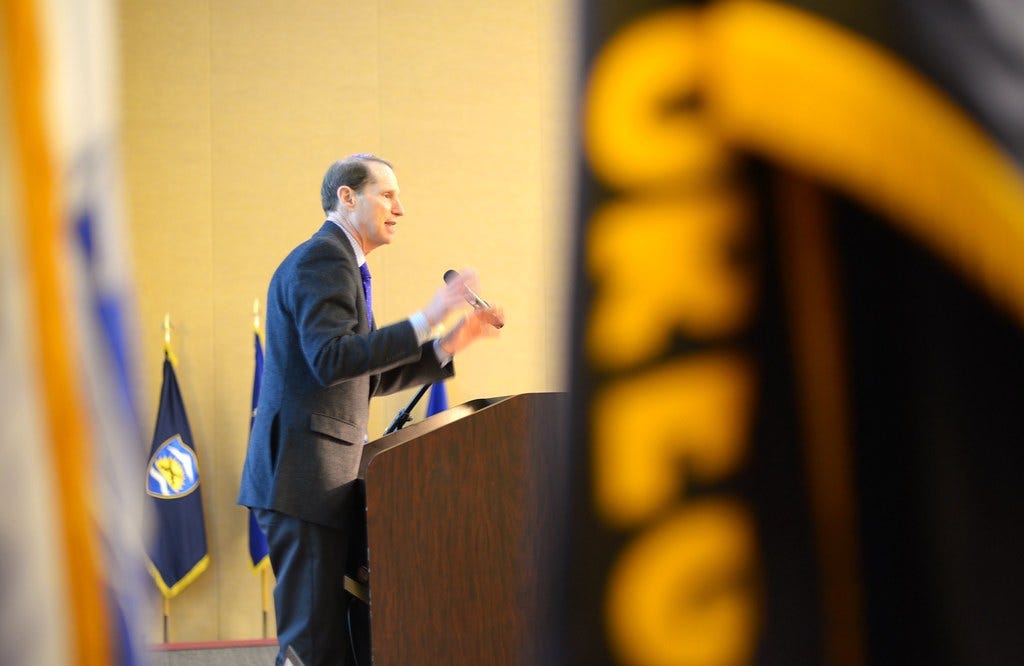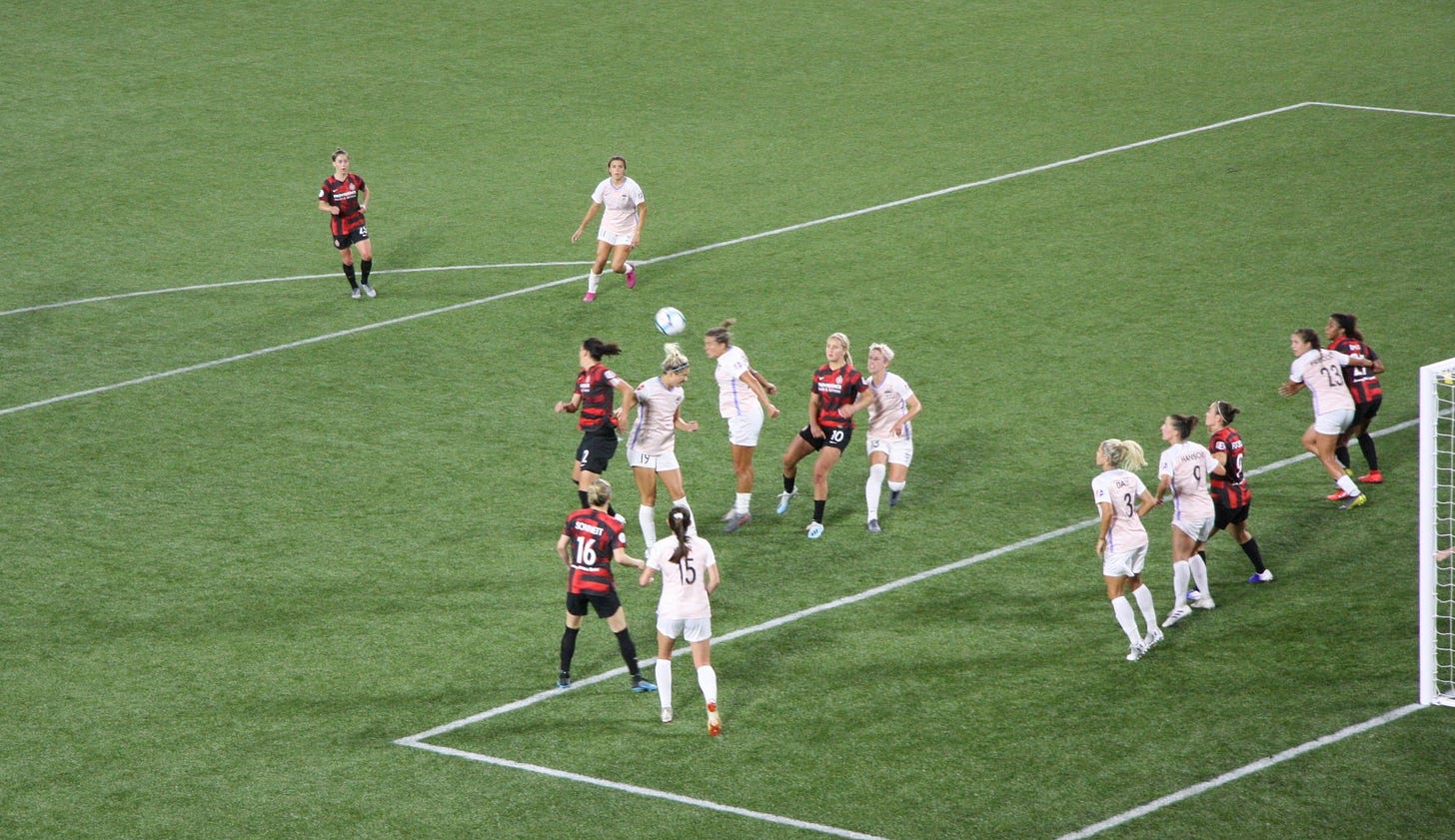Adam Davis: A Small and Large Campaign Change
Governing, especially democratic governing, asks people to listen, absorb, adjust, imagine, include, and evolve.
Housekeeping
Welcome Brian Duty — our newest contributor!
Catch-up on Rediscovering the Oregon Way - read Chapter 6.
Send ideas for contributors, content to Kevin: kfraz@berkeley.edu
Now to the post!
Adam Davis works with Oregon Humanities to get people thinking and talking together, and he used to lead backcountry trail crews with the US Forest Service.

Now that election season and the transition are (mercifully) behind us, a proposal: next time around, could we, at least in Oregon, change the structure of candidate “debates”? Could we design the events that help us evaluate potential officeholders so that they align more closely with what elected representatives actually do while holding office?
Making speeches is a large part of campaigning but a relatively small part of the job of holding political office. Why not arrange the public vetting process so that making speeches is only a small part of how candidates demonstrate their fitness for the position they’re after?
Instead of asking candidates to talk about each other, or even about their policy prescriptions (which are certain to change once they meet real circumstances), we could ask them to talk to and with each other, and not only about policy. Instead of paying attention to their often scripted remarks, we could pay attention to how well they listen in the moment. Instead of highlighting how candidates denigrate other candidates and distinguish themselves, we could spotlight how willing and able they are to work toward solutions as part of a group.

This would be a cheap and easy change – a change only in program design – but it could lead to at least four significant positive outcomes.
First, it would help voters see candidates doing what they would do as officeholders: working together.
Second, it would propound a different leadership model, a model that emphasizes cooperation rather than distinction.
Third, it would encourage people with less speechmaking experience – and more cooperative experience – to see themselves as qualified to run for and hold office.
Fourth, it could influence other states – and maybe the country as a whole – to consider making similar design changes.
I don’t mean to suggest that speechmaking doesn’t matter. It does matter, and sometimes it matters enormously – when responding to a crisis, for example, or reflecting on a tragedy, or inaugurating a new policy or other sort of transition.
But the work that precedes and follows even the most necessary speeches is the more significant work, the work that takes more time and asks for more flexibility, dedication, intelligence, skill, and teamwork. Officeholders at every level must work closely and in ongoing ways with fellow officeholders, with their team, and, above all, with the public. In our current model, campaigning generally asks people to grandstand. But governing, especially democratic governing, asks people to listen, absorb, adjust, imagine, include, and evolve.

If we are interested in participatory democracy, we should do everything we can to encourage and model participatory behavior, beginning with how we invite candidates to show up and demonstrate their fitness for any role in governance. It’s participatory democracy we’re after, not performative democracy. And if, in order to decide who is worthy of our support, we have to see candidates perform, we should at least ask them to perform participation.
What would this shift look like in practice?
An answer by analogy: instead of looking like boxing or MMA or even golf, it could look more like basketball or soccer. Damien Lillard doesn’t end up with the ball in his hands as the game clock winds down because he has told us beforehand what he and only he can do and how at the precisely appropriate moment he’ll step back and let loose a ridiculous jumper over the outstretched hand of one of the best defenders in the NBA.
Similarly, Diego Chara and Lindsey Horan don’t sit at the center of everything the Timbers and Thorns, respectively, do because they have told us that they and only they can be there to do that.
Lillard and Chara and Horan recognize that they’re essential parts of complex, fluid teams. They’re constantly engaged in give and take with their teammates. Sometimes this means making a speech or grandstanding but much more often it means listening, nodding, passing the ball, bumping a fist, tracking back, adjusting to a new situation, getting knocked down, helping a teammate up. As we watch them do all this, we recognize that they deserve to be at the center of these teams – and that in crucial moments, there’s no one we’d rather have there, representing us.

Every analogy is only good up to a point, and I may already have pushed this one too far (please forgive me: I like basketball and soccer), but I believe we can ask our potential officeholders to play basketball or soccer in front of us rather than asking them to box or wrestle or putt. We can put them in conversations where they are asked to think through difficult questions together – questions that they can’t quite anticipate and script out in advance.
We can make small changes to the terms of these conversations as the conversations are happening. We can put water pitchers on their shared tables but leave it to them to fill their and their fellow candidates’ glasses, and we can leave them one glass short. We can include non-candidates in these performative participatory events. We can do so many things that would more closely resemble what governing asks of them.
None of these design changes would cost a cent, and all of them would reveal important aspects of how prospective candidates would serve and who they are. And, no less importantly, all of these design changes would demonstrate and reinforce – to us and to the candidates themselves – what participatory democracy asks of us in practice.
There are plenty of other changes to the campaign and election system that we could also make – from limiting the duration of campaigns to minimizing the influence of money to further expanding the pool of eligible voters and more – but this change – a change in shaping the ways that candidates talk to one another and perform for us – is too simple, inexpensive, and impactful not to try.
Editor’s note: For other ideas on how to improve candidate debates, read Jim Moore’s previous piece in The Oregon Way.
***********************************************
Send feedback to Adam:
@AdamDavisOHm
Keep the conversation going:
Facebook (facebook.com/oregonway)
Twitter (@the_oregon_way)
Check out our podcast:



